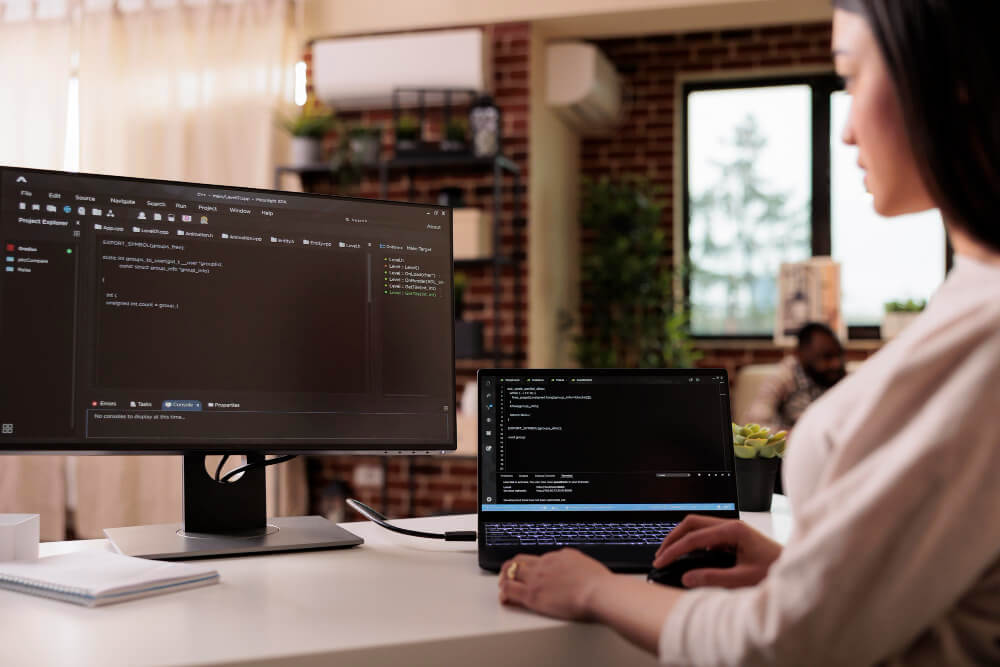



In today’s digital-first workplace, HR departments face the challenge of managing employee interactions efficiently while ensuring a seamless employee experience. Traditional HR support systems often struggle with handling repetitive queries, providing personalized assistance, and maintaining engagement at scale. AI-powered virtual HR assistants are transforming HR functions by automating routine tasks, offering real-time support, and enhancing employee satisfaction.
The Role of AI in HR Assistance
AI-powered virtual HR assistants leverage machine learning, natural language processing (NLP), and predictive analytics to provide instant, personalized, and data-driven support to employees. These AI agents act as digital HR representatives, streamlining communication, improving accessibility, and enhancing the overall employee experience.
Key Use Cases of AI-Powered Virtual HR Assistants
1. Instant Employee Support & Query Resolution
HR teams receive numerous repetitive queries related to leave policies, benefits, payroll, and company policies. AI-driven virtual HR assistants provide:
- 24/7 support via chatbots and voice assistants.
- Instant answers to FAQs, reducing HR workload.
- Seamless integration with HR portals for real-time updates.
2. Automated Onboarding & Training
AI-powered assistants simplify the onboarding process, ensuring a smooth experience for new employees by:
- Guiding them through company policies, tools, and benefits.
- Providing personalized training schedules and resources.
- Automating document submissions and verification processes.
3. Personalized Employee Engagement & Well-being
AI HR assistants play a crucial role in maintaining employee morale by:
- Sending automated reminders for breaks and wellness initiatives.
- Monitoring work hours to detect burnout risks.
- Offering mental health resources and support recommendations.
4. Real-Time Performance Insights & Career Development
Employees seek clarity on growth opportunities and performance metrics. AI-powered HR assistants:
- Provide personalized career growth recommendations.
- Suggest training programs based on role and skillset.
- Offer real-time feedback and performance tracking insights.
5. AI-Driven Feedback Collection & Sentiment Analysis
Employee feedback is essential for improving workplace culture. AI-powered assistants:
- Conduct pulse surveys and collect real-time feedback.
- Analyze employee sentiment through emails and chat interactions.
- Provide HR teams with actionable insights for improving engagement.
Benefits of AI-Powered Virtual HR Assistants
1. Enhanced HR Efficiency
Automating repetitive tasks allows HR teams to focus on strategic initiatives.
2. Faster Query Resolution
Employees receive instant responses, improving satisfaction and reducing wait times.
3. Improved Employee Experience
Personalized assistance fosters a more engaged and motivated workforce.
4. Cost Savings & Scalability
AI-powered HR assistants handle large volumes of requests without additional manpower.
5. Data-Driven HR Decision Making
AI-generated insights help HR teams make proactive, informed decisions.
Implementing AI-Powered Virtual HR Assistants
Step 1: Identify Key HR Challenges
Assess common HR bottlenecks and determine where AI can provide the most impact.
Step 2: Choose the Right AI HR Assistant
Select an AI solution that integrates seamlessly with existing HR systems and tools.
Step 3: Train AI with Company-Specific Data
Ensure AI models understand company policies, culture, and employee needs.
Step 4: Monitor, Optimize & Improve
Regularly review AI-driven interactions and optimize responses to enhance accuracy and effectiveness.
Conclusion
AI-powered virtual HR assistants are revolutionizing the employee experience by providing instant support, automating repetitive HR tasks, and fostering engagement. By integrating AI into HR processes, organizations can enhance efficiency, reduce costs, and create a more employee-centric workplace.
Are you ready to transform your HR operations with AI? Start leveraging virtual HR assistants today!


